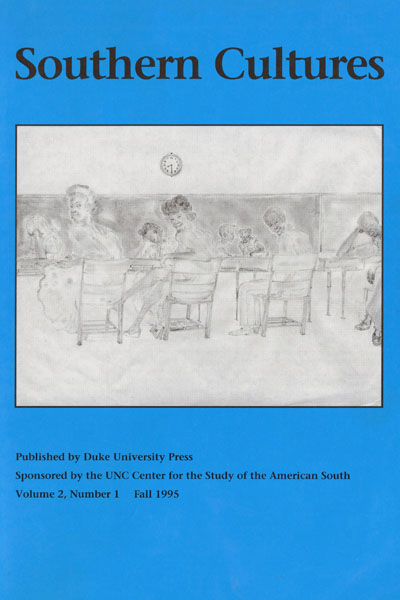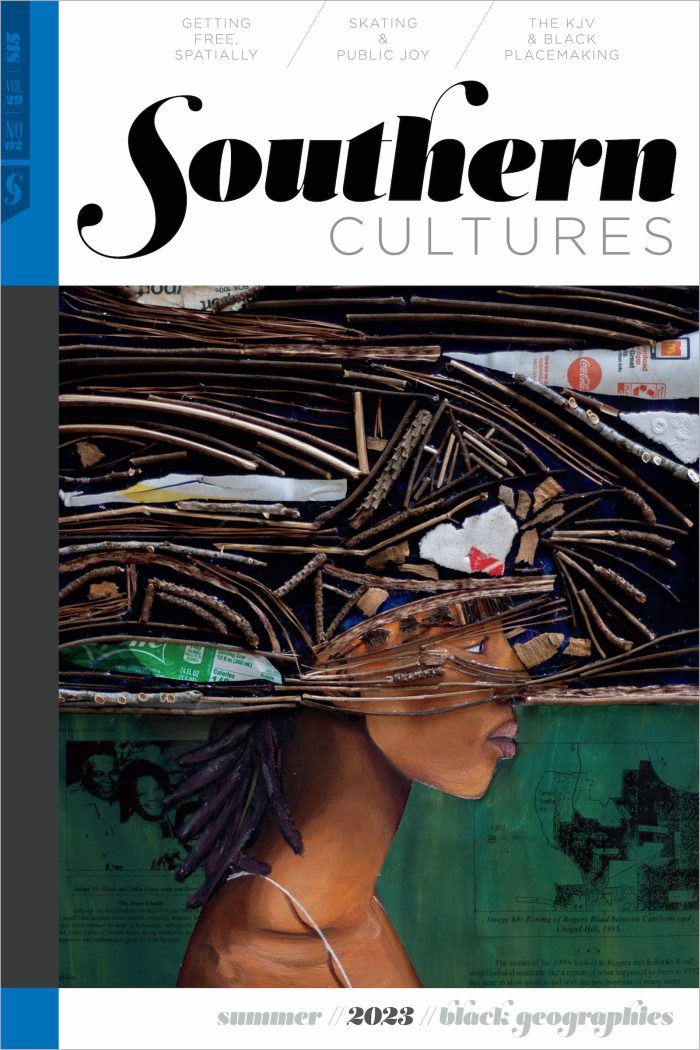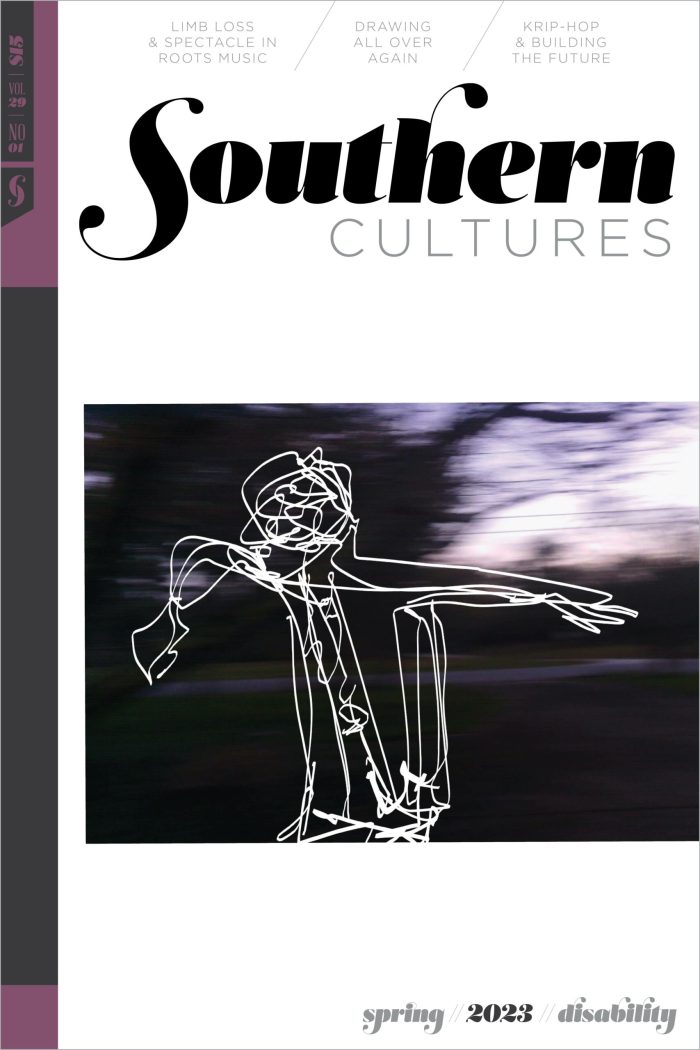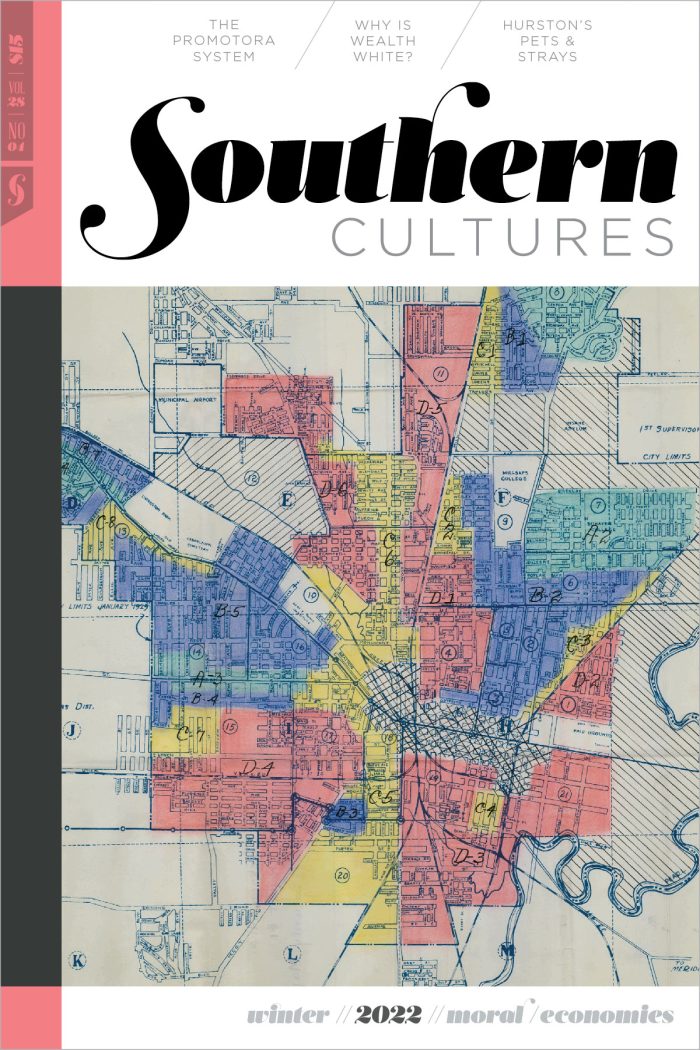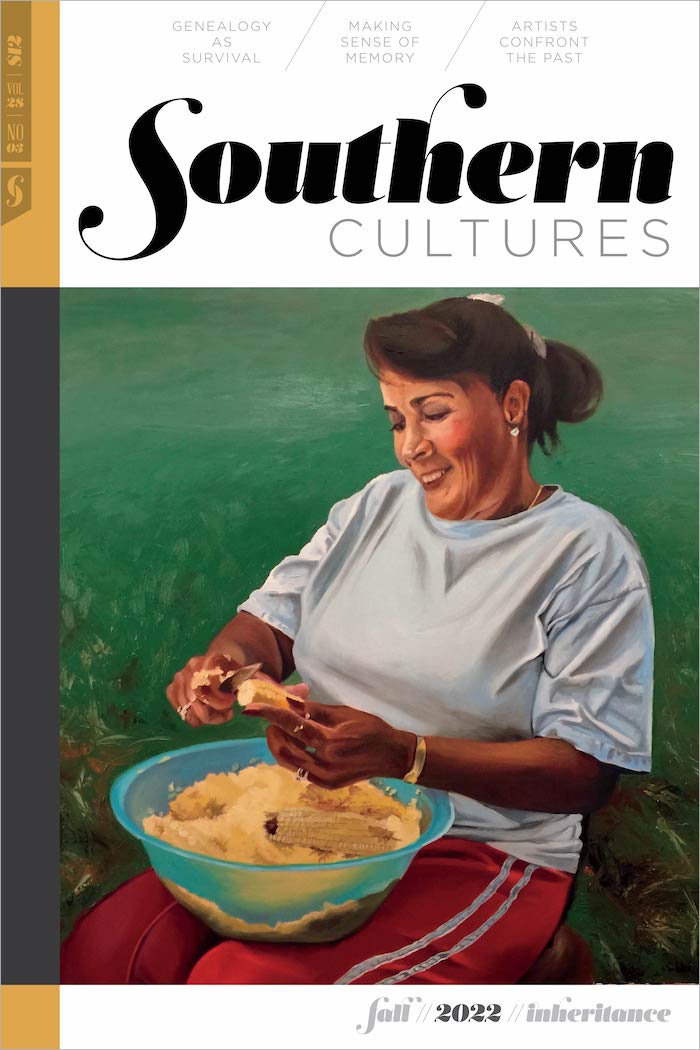BUY ACCESS
by John Shelton Reed
“Spotting an opportunity, some enterprising publishers have created a major industry by helping us to remember important things like the best recipe for mint juleps, or how to add an authentic hot tub wing onto a suburban Big House, or what nice people will be wearing to next year’s Collard Festival.” Dixie, the song tells »
BUY ACCESS
by Edward L. Ayers
“Our sudden interest in memory has something to do with the democratization of history, with our interest in how literally everyone saw themselves.” I would like to admit right off the bat that I didn’t have a thing to do with organizing this extremely well-organized conference, though I did consult on the T-shirts and mugs. »
BUY ACCESS
by Scot A. French
“Our stories should be testaments to the enduring significance of their stories, not monuments to our own changing perceptions of the past.” In planning our conference on social memory and southern history, one question arose again and again: What is social memory? Good question.
BUY ACCESS
by Maurice M. Manring
“Before . . . our joy at the demise of Aunt Jemima and Uncle Tom approaches the indecent, we had better ask whence they sprang, how they lived? Into what limbo have they vanished?” —James Baldwin Peering out from every supermarket’s shelves, between the Pop-Tarts and maple syrup, is a smiling riddle. Aunt Jemima brand »
BUY ACCESS
by Anne Sarah Rubin
“Emmett Till has no voice in all that has been written about him. But how have Americans—white and black, male and female, liberal and conservative—written about the case and the boy, and how have these impressions changed over time?” The undisputed facts of the case are simple and few: In August 1955 Mrs. Mamie Till »
BUY ACCESS
by William R. Irwin
“Often described as a vaudeville show in itself, a Vachel Lindsay poetry lecture was popular entertainment in the 1920s.” Vachel Lindsay (1879–1931), the American poet from Springfield, Illinois, who gave us “Abraham Lincoln Walks at Midnight,” “General William Booth Enters into Heaven,” and “The Congo,” has always been a difficult character to figure out. He »
BUY ACCESS
by Paul V. Murphy
“For us, the long remembering / Of all our hearts have better known.” —Donald Davidson Donald Davidson, a southern poet and leader of the Southern Agrarians, a group of antimodernists who opposed industrial capitalism, conceived of social memory as a “folk-chain,” which binds a people together. The folk-chain transmits tradition, which, Davidson declared, tells southerners »
BUY ACCESS
by Joel Williamson
Harvard University Press, 1993 In To Wake the Nations, Eric Sundquist argues persuasively that literary scholars have not yet fully appreciated the contribution of African American literature to American literary culture. He also makes the more fundamental argument that they have hardly begun to recognize the general impact of African American culture on mainstream American »
BUY ACCESS
by Winthrop D. Jordan
W. W. Norton and Co., 1994 Having previously written a fine study of the Tredegar Iron Works, Charles Dew now takes up a topic that is both narrower and broader. Bond of Iron deals with a group of slaves and masters involved in a successful and long-term enterprise in the iron industry in the Shenandoah »
BUY ACCESS
by James E. Crisp
University of Texas Press, 1995 What can one learn about history from a trip to the Alamo? Quite a lot—especially if one is prepared to approach the site with the critical eye and the sensitive ear of the anthropologist. The first lesson to be learned from Holly Brear’s wide-ranging but perhaps too brief study of »
BUY ACCESS
by Paul D. Escott
University of Illinois Press, 1993 The content of this well-researched book is not exactly what many readers will expect. Kenneth Rayner, a prominent and well-connected North Carolina politician in the middle decades of the nineteenth century, fathered an illegitimate son by one of his slaves in 1850. That child, John B. Rayner, became prominent among »
BUY ACCESS
by James L. Peacock
University of North Carolina Press, 1993 “The South is feminine,” a northern Jungian psychologist remarked to me recently, endowing her statement with the authority of a discipline that defines archetypes. What Silber’s chronicle would inform her, and many of us, is that this sort of categorization is the product of decades of cultural construction fueled »
BUY ACCESS
by Frye Gaillard
University of North Carolina Press, 1994 The history of race relations in the South has probably never seen a more bitter chapter than the period near the end of the nineteenth century when the promise of full freedom was snatched away from a generation that had worked so hard to earn it. Janette Thomas Greenwood »
BUY ACCESS
by Donald G. Mathews
University of Illinois Press, 1994 Kneeling at an altar between a prostitute and a “bum,” John Lakin Brasher did something that few scholars understand: he yielded to Christ’s saving and sanctifying death and the power of his Holy Spirit. The year was 1899, and the place was Birmingham, Alabama, where the young minister’s experience became »
BUY ACCESS
by Lynn Roundtree
Louisiana State University Press, 1993 Joy Jackson’s Where the River Runs Deep sets out to tell two stories: first, the life of the author’s father, Oliver Jackson, who spent most of his life on or near the Mississippi River, and second, the modern “history of the river between Baton Rouge and the Gulf.” Jackson provides »
BUY ACCESS
by Fred Hobson
University of Tennessee Press, 1993 Erskine Caldwell, long a subject ignored or nearly so by scholars of the first rank, is finally getting a measure of what he long said he didn’t care about anyway—literary respectability. Sylvia Cook, a fine student of the fiction of the southern white lower classes, produced Erskine Caldwell and the »
BUY ACCESS
by Tinsley E. Yarbrough
Oxford University Press, 1992 In the wake of the Supreme Court’s 1954-55 decisions striking down state-enforced segregation in the public schools, two young black women embarked upon a courageous mission to challenge racial barriers in Alabama, one of the most unreconstructed of southern states. In 1956 frantic University of Alabama officials found “moral” grounds for »
BUY ACCESS
by John Shelton Reed
“In the South, both hearing you-all and saying it are pretty much unaffected by education and income, and both are almost as common among urban southerners as among rural ones.” “You-all” (or “y’all”) is probably the best-known southernism. Certainly it’s what Yankees invariably turn to when they want to imitate southern speech. And with good »
BUY ACCESS
by Jerrold Hirsch
“The FWP‘s southern life histories program allowed ordinary southerners to join that debate and created a valuable oral history source for a study of the relationship between southern cultural, social, and environmental history.” While historians have long studied the way generations of southern leaders and intellectuals have debated the benefits of an agrarian versus an »
BUY ACCESS
by Gretchen Givens
“At the age of 51, Jesse Whitaker began drawing pencil sketches of his memories of being a schoolboy in eastern North Carolina.” At the age of 51, Jesse Whitaker began drawing pencil sketches of his memories of being a schoolboy in eastern North Carolina. The collection of his sketches that follows and his accompanying thoughts »
